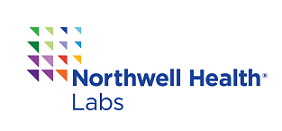Acylcarnitine, Quant Plasma ACYL
Synonyms |
|
Allscripts (AEHR) Order Name |
Acyl Carnitine, Plasma |
Sunrise Clinical Manager (SCM) Order Name |
Acyl Carnitine, Plasma |
Clinical Info |
Used in the diagnosis and monitoring of inherited disorders of fatty acid oxidation and organic acidurias. May be used as a follow-up test to some abnormal newborn screen results. |
Specimen Type |
Blood |
Container |
Green Top Tube |
Collection Instructions |
Container/Tube: Green-top (sodium heparin) Specimen: 1 mL plasma (minimum volume: 0.1 mL) |
Transport Instructions |
Frozen |
Specimen Stability |
2 - 8 Weeks Frozen |
Methodology |
Flow injection/tandem mass spectrometry |
Days Performed |
|
Performing Laboratory |
LabCorp |
CPT |
82017 |
PDM |
5910515 |
Result InterpretationSee report. TAT 4 - 7 Days
Limitations |
|
Forms |
|

